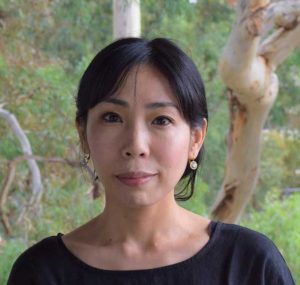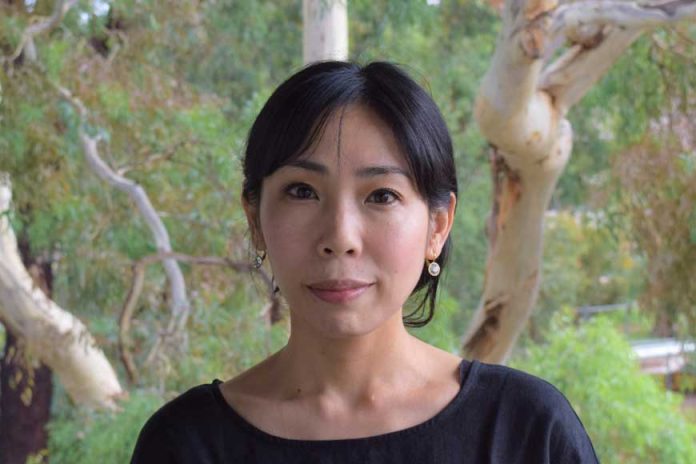Dr. Mai Sato, the new United Nations Special Rapporteur on the situation of human rights in the Islamic Republic of Iran, outlined her priorities in an exclusive interview with Kayhan Life, and said it was high time for a female rapporteur to be named as the Iran rapporteur.
Sato, who is a social scientist and an expert on the death penalty, officially took up her role as the UN rapporteur on Aug. 1. She will move to London next year, when she takes on an additional appointment as Professor and Director of Birkbeck University’s Institute for Crime & Justice Policy Research (ICPR).
“Surely it is now about time that one has a woman rapporteur,” Sato said in the Aug. 23 interview with Kayhan Life. “I am not suggesting that men can’t investigate human rights violations or gender issues, but I thought it would be a subtle yet powerful message to people inside and outside of Iran that there is a mandate holder with lived experience of navigating life as a woman.”
Setting out her priorities for the next 12 months, Sato said she would be focusing on the right to life, gender equality and justice systems in Iran. She added that she would monitor the Islamic Republic’s use of the death penalty for children, and its policy of keeping those children on death row for several months or years until they became adults, at which point they are then often executed.
“The sheer number of executions and also the number of capital offenses in Iran are things I want to focus on,” she said.
Iran is the second most active country after China for its use of the death penalty and is the world’s most prolific executioner of women and children.
“The top two execution countries are the Islamic Republic of Iran and China. But when you look at the data per capita, Iran is at the top,” Sato noted.

Sato, who is originally from Japan, said her own country sat in the lowest segment of the World Economic Forum’s annual global gender gap index alongside Iran. The index highlights gender equality concerns in countries around the world. The latest report, released in June, ranked Iran 143rd out of 146 listed countries, while Japan ranked 118th on the index.
“That might be surprising for people who didn’t grow up in Japan, but I certainly grew up with gender equality not being the norm or the accepted norm,” Sato said. “For the last 20 years or so, I’ve lived outside of Japan, and I’ve experienced both gender tolerance, acceptance, and intolerance too. And I thought that might be an asset for the mandate.”
Sato also noted that gender equality was a driver for promoting stability and peace inside countries.
“I’m keen to have a gendered lens in all of my thematic reports, and I think that will be good as a cross cutting issue for both civil and political rights as well as cultural, social, economic rights,” Sato added.
In her first statement as rapporteur — issued jointly on Aug. 20 with other UN experts including Reem Alsalem, the Special Rapporteur on violence against women and girls — Sato expressed concern at the treatment of Nobel Laureate and human rights advocate Narges Mohammadi and other prisoners in Iran who are in need of urgent medical treatment.
In their statement, Sato and the experts “expressed dismay that Iran continues to deny access to timely and appropriate healthcare to human rights defender, Narges Mohammadi and other detainees, despite repeated appeals.”
“Once again we call on Iranian authorities to release her immediately and ensure her access to full medical care without delay, along with other detainees,” the statement said.
Sato also said that she wanted to “write about, more broadly, the right to life, because the death penalty is only one of the many ways in which the state kills. Then there’s also extrajudicial killings, and police extra judicial killings, and deaths in custody.”
“Some of the laws, like honor killing laws, while that is not the state directly killing someone, is another way of the state condoning and excusing killing.”
A surge in executions in Iran in recent weeks was criticized by international human rights bodies and UN officials. A spokesperson for the UN High Commissioner for Human Rights Volker Turk said the increase in executions since the election of Iran’s new president Masoud Pezeshkian in July represented “an alarmingly high number of executions in such a short period of time.”
An estimated 87 people were executed in the month following the presidential elections, while 29 individuals were hanged in a single day.
Islamic Republic Is Condemned for Human Rights Violations at UN Human Rights Council
The Islamic Republic has consistently denied engaging in human rights violations and refused to commission independent reviews into allegations of mass violations in the country.
Engagement with the Islamic Republic by UN officials has been notoriously difficult. The government has repeatedly refused to acknowledge the legitimacy of UN reports, respond to requests for action and allow UN rapporteurs into the country. All four previous holders of the mandate were denied entry into Iran to meet with officials and carry out investigations.
Sato said in the interview that there were ways in which UN officials could engage with Iran officials, even if a country visit was not possible in the first instance.
“For my first step, I would love to have a meeting with the permanent mission in Geneva and also in New York, to be able to discuss my approach. A discrete dialog is perfectly fine, but if I’m not getting the cooperation, then I will probably have no choice but to be very public about the violations that are happening,” Sato said.
The position of UN Rapporteur on Iran was previously held by Dr. Javaid Rehman, who in an unprecedented move for UN mandate holders became increasingly vocal about the state of human rights in Iran. Rehman routinely condemned Iran’s government for violations against women and children, protesters and minority groups in reports, statements and public conferences.
In one of his last reports in the role, Rehman accused the Islamic Republic of “atrocity crimes” against minority groups and killings in the 1980s. The comment was in reference to arbitrary and extrajudicial executions which took place from 1981 to 1982, and in 1988. Rehman said the actions “amounted to crimes against humanity of murder and extermination, as well as genocide,” and called on the allegations to be independently investigated.
“Dr. Rehman told me about his insights from the mandate and was respectful enough to not tell me how one should be performing on the mandate but what he stressed was the importance of being resilient and to continue to try and engage with the Islamic Republic of Iran,” Sato said.“One other piece of advice that was really useful is that you have the duty bearers and the rights holders, and it’s really important to address that, but also the special rapporteurs are always independent. One point he made which has stuck with me is that I’m also independent from the UN and UN mechanisms.”
On why she chose to apply for the role, Sato said it wasn’t a position she had considered until she learned about the ‘Woman, Life, Freedom’ movement in Iran and Dr. Rehman’s reports on the state of human rights in the country.
Systemic violence against women in the Islamic Republic garnered global attention in 2022 following the death of 22-year-old Mahsa Amini, who was killed while in police custody for failing to cover her hair. Amini’s death sparked the ‘Woman, Life, Freedom’ movement, which advocates for gender equality in Iran.
OPINION: The Solution to the ‘Iran Problem’ is Regime Change
Prince Reza Pahlavi : ‘The Alternative to the Islamic Republic is the Iranian nation’


